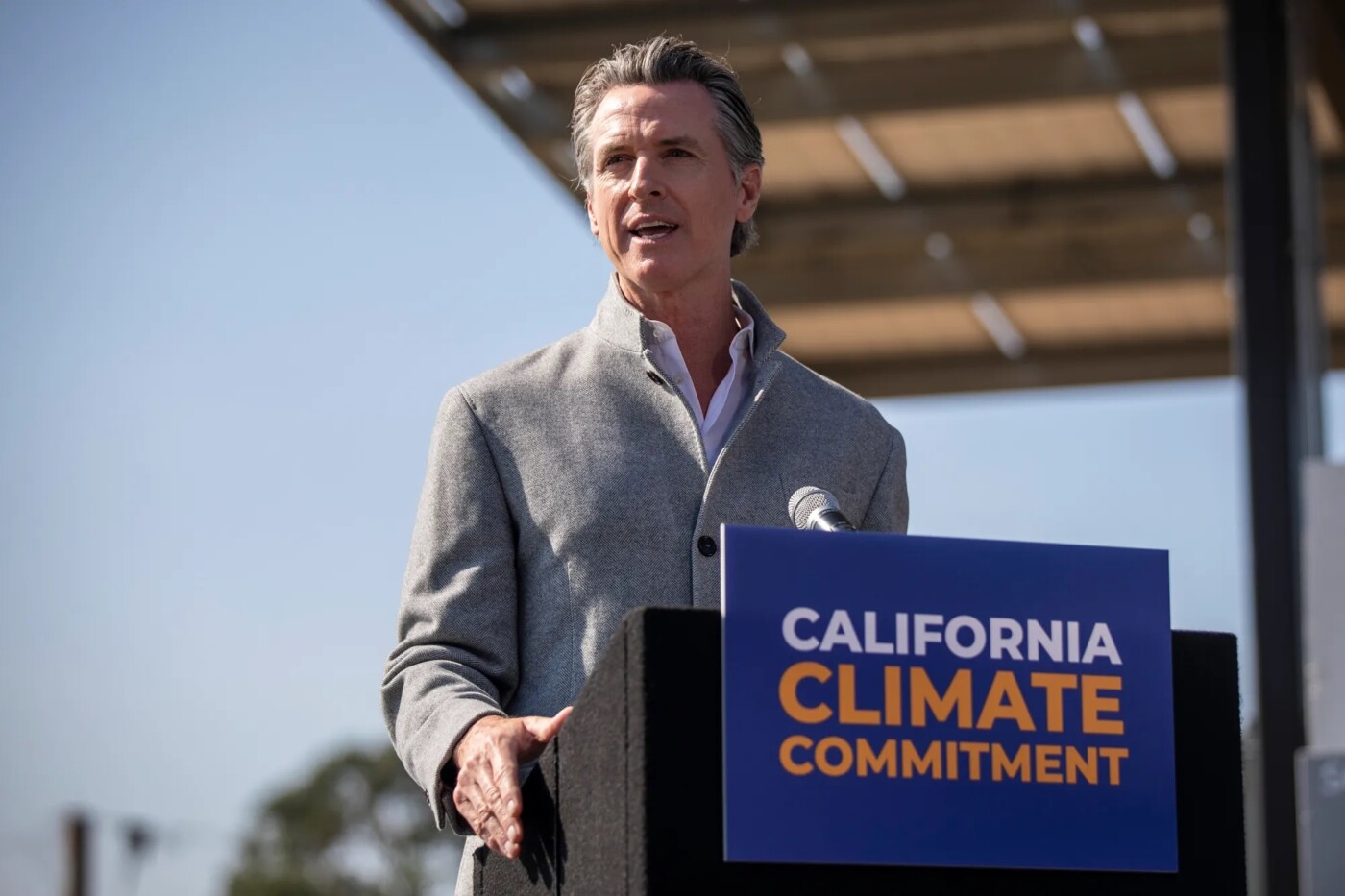California’s governor doesn’t typically comment on legislation — something he reiterated during a talk on stage at Climate Week NYC on Sunday. Except when he does.
At the summit, Gavin Newsom commented in a very public way that he will sign two landmark climate accountability bills that the Legislature sent to his desk last week: Senate Bills 253 and 261, authored by Democratic Sens. Scott Wiener and Henry Stern, respectively.
The bills, which were approved by the Legislature last week, require 5,300 companies that do business in California and have revenues exceeding $1 billion to disclose their greenhouse gas emissions and their financial risks from climate change. CalMatters climate reporter Alejandro Lazo reported in June that the legislation would force the companies — from Amazon to Bank of America to WalMart — to reveal their complete carbon footprint, even emissions from their suppliers and the consumers who use their products.
- Newsom: “What we love about California … it’s not just a state of dreamers and doers, of entrepreneurs and innovators, but it’s a state that has long prided itself on being on the leading and cutting edge. The future happens in California first.”
- Wiener, in a statement: “When business leaders, investors, consumers, and analysts have full visibility into large corporations’ carbon emissions, they have the tools and incentives to turbocharge their decarbonization efforts.”
The governor made the announcement during a discussion about a civil lawsuit filed Friday on behalf of the state, which seeks to hold ‘Big Oil’ accountable financially for contributing to “climate change-related harms in California,” including extreme drought, wildfires and storms, and lying about it and deceiving the public for decades.
The lawsuit names Chevron, which is based in San Ramon, as well as Exxon Mobil, Shell, ConocoPhillips, BP and the industry’s trade association, the American Petroleum Institute.
The state’s demands: Oil companies paying their fair share for recovery efforts from superstorms and wildfires, protecting people from extreme heat, managing water supplies and fortifying infrastructure and homes against sea level rise and flooding.
California isn’t the first government entity to try to tackle climate accountability through the courts. The state has filed briefs in support of lawsuits by cities, counties and other states, including Honolulu, Maui, Baltimore, Rhode Island, Minnesota and the District of Columbia. Newsom said during the talk, given the size of California’s economy, the state’s filing may help move the needle.
Environmental groups praised the move, and likened the lawsuit to those against tobacco and opioid companies.
- Richard Wiles, president of the Center for Climate Integrity: “As similar cases proceed toward trial, California’s move is an unmistakable sign that the wave of climate lawsuits against Big Oil will keep growing and that these polluters’ days of escaping accountability for their lies are numbered.”
But progress on the governor’s climate goals hasn’t been linear. State approvals for new oil and gas wells have dropped off this year, but permits to improve or repair existing wells were up nearly 50% to 1,650 in the first half of this year, Reuters reported. In June, 100 scientists sent a letter to the administration, urging a complete halt to new approvals, particularly near homes and schools. Environmentalists say the state should make oil companies plug unproductive wells rather than continuing to grant them permits to improve them.
The governor also expressed his disappointment at one effort that fell short as the legislative session wrapped up last Thursday: a deal to allow insurance companies to revise their risk modeling and rate-setting. Companies have been dropping customers — or, in State Farm Insurance’s case, stopped issuing new policies in California, because they say the cost of doing business in the state is too high.
- Newsom at the summit: “This is a red flag, not a yellow flag. And we are not going to be waiting till January, the next legislative session to address it. And so in real time, we will be moving with some creative ideas — watch this space.”
